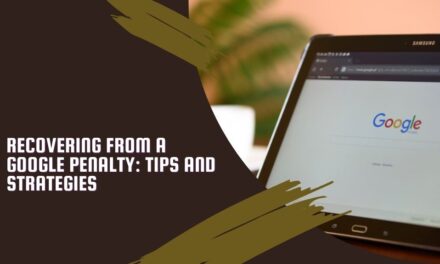Social media and SEO have become two influential elements in the digital marketing arena. Although they might appear to be distinct approaches, their interplay can greatly enhance your online visibility. Comprehending the connection between social media and SEO can lead to improved search rankings and a more robust digital presence.
Understanding Social Signals and Their Impact on SEO
Social signals pertain to interactions and engagements on social media sites, including likes, shares, comments, and retweets. These interactions signal to search engines the potential popularity or worth of your content. Although social signals are not explicit ranking factors, they contribute indirectly to enhancing your SEO efforts.
Why Social Signals Matter
Social signals act as indicators of credibility and relevance. When a piece of content gets significant attention on social media, search engines perceive it as more likely to be valuable for users. This can indirectly affect search rankings by increasing organic traffic and reducing bounce rates.
For example, a blog post shared widely on platforms like Facebook or Twitter may attract thousands of visitors. This surge in traffic signals to search engines that the content is engaging and worth promoting. Additionally, as more users interact with and link back to your content, it gains authority, further enhancing its ranking potential.
The Role of Social Media in Content Discovery
Social media sites serve as portals for discovering content. When you release a new blog or article, promoting it on social media expands its audience well beyond your direct followers. This may result in increased click-through rates and, ultimately, improved rankings. It also generates chances for your content to be noticed by influencers, resulting in even greater visibility.

The Indirect Influence of Social Media on Search Rankings
Although social signals aren’t direct ranking factors in Google’s algorithm, they can influence your SEO performance in various ways. By fostering user engagement and driving traffic, social media helps amplify the visibility of your website and content.
Increased Backlink Opportunities
A major advantage of social media is the opportunity to gain backlinks. When your content is extensively shared and reaches the appropriate audience, it is more probable that other websites will reference it. Top-notch backlinks are one of the key elements that affect search rankings significantly.
For example, an engaging infographic or case study that gains traction on LinkedIn could be cited by industry blogs or news organizations. These backlinks boost your domain authority and elevate your search engine performance.
Enhancing Brand Authority and Trust
A strong social media presence can elevate your brand’s credibility. Consistent sharing of informative and engaging content builds trust among your audience. Search engines take cues from this trust when determining the relevance of your website.
For example, an active Twitter profile with meaningful interactions can showcase your expertise and authority in your niche. This, in turn, reinforces your SEO efforts, as users are more likely to click on your website from search results.
How Social Media SEO Strategies Drive Engagement
To maximize the synergy between social media and SEO, it’s crucial to implement strategies that drive user engagement. Creating high-quality content tailored to your audience and promoting it effectively on social platforms can make a substantial difference.
Optimizing Content for Sharing
Content optimization is crucial for enhancing social signals. Make certain that your content is attractive and simple to share. Utilize engaging headlines, appealing visuals, and straightforward calls to action. For instance, a creatively crafted post featuring an eye-catching title on Instagram has a higher chance of going viral compared to simple text.
Add social sharing buttons to your blog or website to facilitate visitors in sharing information. Motivate users to share by incorporating quotes or highlights that can be easily shared within the content.
Engaging With Your Audience
Building relationships with your audience is key to fostering engagement. Respond to comments, participate in discussions, and ask for feedback. This two-way communication not only strengthens your brand’s reputation but also increases the likelihood of social shares.
For instance, hosting live Q&A sessions on platforms like Facebook or YouTube can boost interaction and lead to a surge in website visits, enhancing your SEO performance indirectly.
Content Formats That Work Best for Social Media SEO
Not all content is equally effective in leveraging social signals. Some formats perform better on social platforms, increasing their potential to improve your search rankings.
Visual Content: Images and Videos
Visual contents like images, videos, and infographics attract more interaction on social media. Platforms such as Instagram and TikTok succeed due to their attractive visual content. Incorporating keywords into video descriptions or alt text allows you to align your social media content with your SEO objectives.
For instance, a YouTube tutorial video tailored for the keyword “social media SEO” can attract specific traffic to your site and improve your online presence.
Long-Form Content
While social media often thrives on short, snappy posts, long-form content shared on platforms like LinkedIn or Facebook can also generate substantial engagement. A detailed guide or whitepaper shared with a captivating introduction can attract clicks and shares, indirectly boosting your SEO.
Interactive Content
Polls, quizzes, and contests engage users and encourage them to share your posts. This not only increases your social reach but also drives traffic to your website. For example, a contest encouraging participants to visit your blog for answers can lead to higher page views and better rankings.
Tips for Aligning Social Media Efforts With SEO Goals
To create a seamless synergy between social media and SEO, a strategic approach is essential. Focus on integrating your efforts across both domains for maximum impact.
Maintain Consistent Branding
Consistency in branding across all platforms helps establish a recognizable online presence. Use the same logo, color scheme, and tone of voice on your website and social media profiles. This consistency builds trust and encourages users to engage with your content.
For instance, a cohesive presence across Twitter, Instagram, and your blog ensures that users associate all content with your brand, amplifying its impact.
Track and Analyze Performance
Utilize analytical tools to assess the success of your social media SEO tactics. Resources such as Google Analytics and social media insights can assist you in recognizing what is effective and what requires modification. Track statistics including click-through rates, social media shares, and duration spent on your website.
Collaborate With Influencers
Partnering with influencers can exponentially increase your reach. Influencers with a strong following can promote your content to a wider audience, generating valuable social signals and driving traffic to your website.
For instance, a popular Instagram influencer sharing your product review can lead to a spike in website visits and potential backlinks.

Challenges in Leveraging Social Media for SEO
While social media offers immense potential for enhancing SEO, it comes with challenges. Staying updated with algorithm changes and consistently producing engaging content requires effort and adaptability.
Managing Time and Resources
Managing social media alongside SEO efforts can take a lot of time. Focusing on platforms that resonate with your audience and prioritizing tasks can simplify the process.
Staying Relevant Amid Algorithm Changes
Both social media platforms and search engines frequently update their algorithms. Staying informed and adapting your strategies is crucial for maintaining visibility.
For example, changes in Facebook’s content prioritization might affect your post’s reach, requiring you to explore new tactics to maintain engagement.
Conclusion
The synergy between social media and SEO is undeniable. By leveraging social signals, you can boost your content’s visibility, drive organic traffic, and enhance search rankings. While social signals may not be direct ranking factors, their indirect influence on SEO makes them indispensable in any digital marketing strategy.
By concentrating on developing captivating content, encouraging audience engagement, and coordinating your social media with your SEO strategies, you can discover fresh avenues for growth. As the digital environment progresses, leveraging the strengths of social media and SEO simultaneously will stay an essential element of achieving success.












